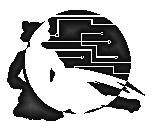|
Linux/UNIX Installation Issues
Hardware Issues
When installing a server style operating
system (such as UNIX, LINUX, NT etc), hardware can be a major stumbling
block. It is usually best to decide on your operating system and then
check to see what hardware it supports, and THEN buy/build the system you
want. Thankfully, as long as you don't buy "cutting edge" hardware, your
odds of being able to get it to work are steadily increasing as vendors
and programmers improve their hardware support.
Some things to be aware of with Linux and hardware:
- Modems- "WinModems" have removed most of the hardware
from the card
and let the CPU do all the work. Which is extremely silly on most
Microsoft Operating Systems as they tend to overload the poor CPU as it
is, and they just are a waste of time in UNIX/Linux, even if you can
somehow get them to work. Buy either an external modem (make sure your
serial ports can handle the speed) or an internal from Zoom, or make sure
it has the "Rockwell Chipset" on board. You'd be amazed, I sometimes get
better actual speeds with my 28k 'real' modem than someones 56k "No Win
Modem" and they try to do some other task.
- USB or Universal Serial Bus- Considering that the
standard for the MS
Windows group continues to mutate, it's no surprise Linux has problems
with this, though standard support for USB will show up in the 2.4 kernel
versions. BEWARE: USB also has the CPU do a lot of work, and still isn't
quite as fast as SCSI cards.
- SCSI- Definitely the way to go for many devices
(scanners, Hard
Drives, CD ROMs, RAID, Jazz drives, CD RW and more). The speed is truly a
wonderful thing. But be careful, support for different SCSI adapter cards
varies WIDELY, and Redhat Linux no longer supports SCSI during
installation very well, if at all.
- Printers-Another area that can be disappointing if you
are not
careful. Look at the list of supported printers before you buy if you can,
otherwise you'll have to figure out which supported printer is close
enough to your own to work. (Either that or find a third party company
that provides the proper filters for your printer)
What you need to know about your hardware
To run a UNIX/Linux system, there are certain bits of information that you
need to know, especially if you want to optimize your system.
For each card you have in your machine you need to know:
- IRQ (interrupt request #, some plug and play cards make these change
randomly with each bootup)
- IO (input output memory address)
- DMA (direct memory access channel, often important for sound cards)
Monitors and Video Cards are another possible place to have problems. It
can help greatly to know the following:
- Video Card
- Exact Model of the Card
- Chipset
- Clock Settings
- Amount of Memory
- Video Resolutions that it Supports**
(be careful not to overdrive your monitor, you can do
actual physical damage to the monitor)
- Monitor
- Resolutions Supported
- Vertical Refresh Rate in kHz (very critical) at different
resolutions
- Horizontal Refresh Rate
- Either exact model, or which models it is synonymous with from
the same manufacturer.
|


